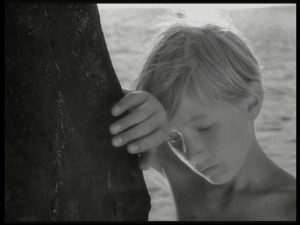Abstract by Marja-Riitta Koivumäki

A performance or an audio-visual performance (screening) is an essential part of theatre and film art. My concept of dramaturgy is tied around the concept of a performance but what does it mean, when we talk about film. I will start my presentation by discussing the dramaturgical approach in studying film from the practitioner’s point of view.
Through dramaturgical approach, I aim to reveal the systematic function of an immanent structure created by contrast and visual spatial metaphor in Andrey Tarkovsky’s Ivan’s Childhood (1962). My contention is that contrast and spatial metaphor in Tarkovsky’s film organizes the story elements in a way that can be described as “poetic” − something that is inherently typical for visual storytelling. Therefore, contrast not only organizes characters but also other meaningful elements in a story and provides a potentially useful tool not only for the writer, but also other film practitioners. In addition, this paper aims to analyze the nexus between word and image in the screenplay and film in order to understand whether contrast and spatial metaphor have been defined in the screenplay or are they something that the director has introduced into the film.